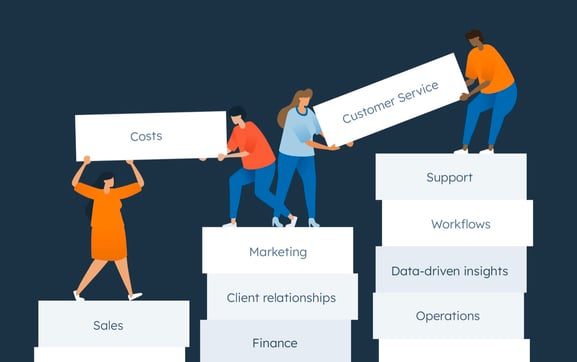Tech and privacy views from about the globe
By: Jeremy Wagstaff

This week:
- Industrial requirements and user anticipations collide for privacy-centered business DuckDuckGo
- For Large Tech, achievement is tightly bound to acquiring strategies to muddy the waters above privacy—legally and in its interface models
- In the meantime, Large Tech fights a parallel fight around users’ right to maintenance their units
Offering Privateness As a Function Isn’t Simple
Privateness is a impressive marketing and advertising device, but it leaves any enterprise touting its privateness credentials susceptible if the enterprise seems to slide brief of its promises. A single privateness researcher has accused DuckDuckGo’s cellular browser of letting Microsoft trackers for its products LinkedIn and Bing on internet sites that are not Microsoft-owned. DuckDuckGo CEO Gabriel Weinberg’s endeavours to protect and clarify spotlight the amplified complexity of monitoring users’ habits from a single web-site to another—and how tough it is for a firm to give on the internet privateness devoid of compromising facets of it to make revenue. There is a deeper consider on the controversy from ZeroHedge. [Editor’s note: DuckDuckGo is a donor to The Markup.]
Weaving Dark Patterns for Own Data
A study of privacy insurance policies by Security.org, a security and privateness web-site, concluded that Google collects 39 facts points on just about every user, like “name, phone amount, payment facts if you have made any purchases by means of Google, electronic mail deal with, e-mails you deliver and obtain, movies, photographs, paperwork, and spreadsheets you have stored, and your YouTube comments.” And to make sure that this facts can be collected, tech firms have gone to terrific lengths to get users’ consent, frequently by means of presenting misleading consumer interfaces. These online techniques, termed dark styles, “undermine particular person autonomy,” argues The Regulatory Evaluate, part of the Penn Program on Regulation.
But this “manipulation” is probably seen a different way—as an inescapable innovation in an industry that competes for users’ focus and information. In fact, the field dependent on private info is just one that has been thus considerably seen and controlled not by a political lens but through a capitalist just one, where it is noticed “not only as a successful supply of innovation, but as a reliable regulator of marketplace individuals as well: a self-correcting ecosystem which can be trustworthy to contain the worst excesses of its contributors,” in the text of Jamie Susskind, a London-dependent attorney and the author of a forthcoming guide on regulating electronic technologies. “In this context we can, albeit dimly, view the political struggle-lines that are now getting drawn for this century,” Susskind concludes. Attempts in the U.S. to come across statutory options continue in the meantime: A new Residence bill desires to develop a Significant Tech regulatory company.

Privacy and the Ideal to Mend
This debate in excess of privateness of data has a parallel in a debate above our products. The question revolves about this: When will buyers actually possess our devices—so we could, for instance, deal with or tinker with them ourselves? Apple has extended fought suitable-to-fix legislation and is kicking and screaming in which people fights have failed. Here’s what that appears like in follow: transport a 79-pound Apple iphone restore package to resolve a 1.1-ounce battery, charging the similar value for a new battery that the substitution and installation would expense at an Apple store, and levying a $1,200 credit score card maintain for the toolkit.
That’s not the main trouble, although, argues iFixit CEO Kyle Wiens: Whilst it delivers tools and manuals, Apple has a strategy of pairing specific parts to a specific cellular phone. So changing a display screen, for case in point, could mean the system would not do the job as very well as it did with the first display. These “cryptographic locks” are stated in a lot more depth by Lee Vinsel, a professor at Virginia Tech and a co-founder of The Maintainers, a research network centered on maintenance and repair difficulties.
Other major tech businesses are performing much better: Microsoft, beneath force from shareholders, is discovering actions for proper to repair and has discovered that repairability gives higher environmental rewards. Google has promised much more methods to restore its Pixel cell phone, although there’s criticism it has not gone considerably more than enough. And it is very little like some corporations: Valve has built areas for its handheld gaming laptop or computer Steam Deck readily available to third functions to help them repair and even improve the unit. But so considerably such examples are rare and much more typically discovered on the fringes.
Jeremy Wagstaff, previously a engineering journalist with Reuters and columnist with The Wall Road Journal, now will work as a author and guide. Earlier customers have included Microsoft, Google, Cisco, Samsung, and Facebook. He has no present purchasers among the, or fiscal curiosity in, any firms in the Fortune 500.
This write-up was at first published on The Markup and was republished below the Resourceful Commons Attribution-NonCommercial-NoDerivatives license.
What do you consider of this write-up from The Markup? Make sure you share your feelings on any of the social media web pages stated below. You can also remark on our MeWe webpage by signing up for the MeWe social community.
Final Up to date on June 11, 2022.






More Stories
Indulge in Luxury: High-End Women’s Cardigans Worth It
History of the Computer – Cooling, Part 1 of 2
The Importance of Video and Computer Games